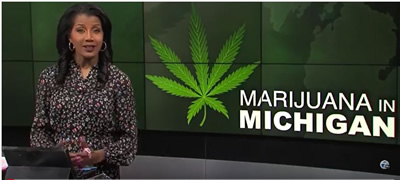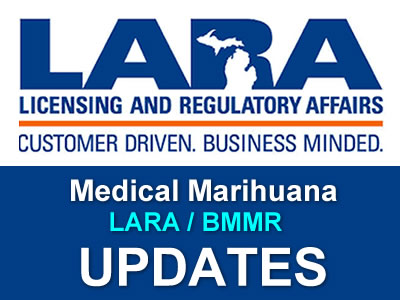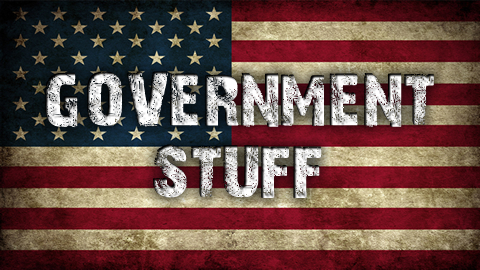


Medical Marihuana Regulation Updates From LARA / BMMR

35 years of research reports about driving on cannabis-marijuana
35 years of research reports about driving on cannabis / marijuana.
For the public health and safety, these Marijuana driving research materials are presented in order to educate legislators and the public about driving safety. Please remember that a lot of these studies have been biased over the years. The largest study to date, completed by The National Highway and Traffic Safety Administration says that marijuana poses no increased risk of accident or crash. https://www.nhtsa.gov/sites/nhtsa.dot.gov/files/documents/812440-marijuana-impaired-driving-report-to-congress.pdfWhen the odds ratios were adjusted for demographic variable of age, gender, and race/ethnicity the significant increased risk of crash involvement associated with THC disappeared. The adjusted odds ratio for THC positive drivers was 1.05 (95% Confidence Limit of 0.86 – 1.27). This adjusted odds ratio was not statistically significant. A final adjustment was made for the presence of alcohol. When both demographic variables and the presence of alcohol were taken into account, the odds ratio for THC declined further to 1.00 (95% Confidence Limit of 0.83 – 1.22). This means there was no increased risk of crash involvement found over alcohol or drug free drivers. As was described above, there was no difference in crash risk for marijuana-positive drivers who were also positive for alcohol than for marijuana-positive drivers with no alcohol, beyond the risk attributable to alcohol. http://www.nhtsa.gov/staticfiles/nti/pdf/812117-Drug_and_Alcohol_Crash_Risk.pdf
NOTE: Many reports will say that drivers have marijuana in the blood, yes, of course, because marijuana is detectable in your blood for months.
Marijuana Driving Studies
Enjoy… 1983_104-MARIJUANA-ALCOHOL-DRIVING-PERFORMANCE-STUDY.pdf 1986_003-EPIDEMIOLOGICAL-LABORATORY-STUDIES-ON-ALCOHOL-DRUGS-TRAFFIC-SAFETY.pdf 1986_036-CANNABIS-AND-ALCOHOL-USE-AMONG-DRIVERS-PEDESTRIANS-FATALLY-INJURED.pdf 1989_047-COMPARABILITY-OF-ALCOHOL-AND-DRUG-USE-IN-INJURED-DRIVERS.pdf 1989_048-ALCOHOL-AND-DRUGS-AMONG-FATALLY-INJURED-DRIVERS-OF-HEAVY-TRUCKS.pdf 1989_088-ALCOHOL-AND-DRUG-USE-AMONG-VICTIMS-OF-VEHICULAR.pdf 1989_090-DRUGS-OF-ABUSE-AND-FATAL-AUTOMOBILE-ACCIDENTS.pdf 1992_059-Detection-of-cannabinoids-in-serum-of-vehicle-drivers-after-smoking-cannabis.pdf 1992_072-Marijuanas-effect-on-actual-driving-summary-of-a-3-year-experimental.pdf 1995_001-Alcohol-and-Other-Drug-Use-in-Commercial-Driving.pdf 1995_002-Marijuanas-Effects-on-Actual-Driving-Performance.pdf 1995_049-Whats-New-in-Alcohol-Drugs-and-Traffic-Safety-in-the-US.pdf 1995_060-Effects-of-Cannabis-on-Psychomotor-Skills-and-Driving.pdf 2000_044-Signs-and-Symptoms-Predictive-of-Drug-Impairment.pdf 2000_053-Marijuana-Use-and-Impaired-Driving-Behavior-Among-Adolecents-in-Florida.pdf 2000_069-The-Role-of-Stimulants-in-Road-Crashes.pdf 2000_078-The-Real-Risk-of-Being-Killed-When-Driving-Whilst-Impaired-by-Cannabis.pdf 2000_145-Low-Doses-of-Marijuana-an-Alcohol-Severly-Impair-Driving-When-Taken-Together.pdf 2000_172-Review-of-Europeon-Investigations.pdf 2002_135-Comparison-of-Student-Attitudes-Toward-Driving-Drunk-VS-Driving-while-on-Cannabis.pdf Drinking, cannabis use and driving among Ontario students 2004_050-Cannabis-and-Road-Safety-in-Canada.pdf 2004_124-An-Evaluation-of-Rapid-Point-of-Collection-Oral-Fluid-Drug-Testing-Devices.pdf 2007_307-Adolescent-Marijuana-and-Alcohol-Impaired-Driving-Behaviours.pdf 2013_036-Alcohol-and-other-drug-involvement-in-fatally-injured-drivers.pdf 2013_RSM_DrugsDriving_6.pdf 2015-Summary-of-Motor-Vehicle-Crashes-Final-Edition-Traffic-Safety-Fact-Sheet.pdf 2016-Alcohol-Impaired-Driving-Traffic-Safety-Fact-Sheet.pdf 2016-FINAL-Legalization-of-Marijuana-in-Colorado-The-Impact.pdf 2016-NHTSA-Quick-Facts.pdf 2044_effets_cannabis_conduite_automobile-FRENCH.pdf 40621_2017_Article_105.pdf 812117-Drug_and_Alcohol_Crash_Risk.pdf A-Case-Control-Study-Estimating-Accident-Risk-for-pone.0043496.pdf A-Case-Control-Study-of-Driving-While-Impaired-Offenders.pdf Acute-cannabis-consumption-and-motor-vehicle-asbridge2012.pdf AdvancingDruggedDrivingData.pdf A-latent-class-analysis-of-poly-marijuana-use-among-young-adults-krauss2017.pdf Alcohol-and-drugs-in-seriously-injured-drivers-in-six-european-countries.pdf Alcohol-and-Marijuana-Use-Patterns-Associated-With-Unsafe-Driving-jsad378.pdf Alcohol-and-marijuana-use-while-driving-an-1471-2458-12-145.pdf Alcohol-and-Other-Drug-Use-in-Boston-Teens-wechsler1984.pdf Alcohol-Drugs-and-Traffic-Safety-ferrara1987.pdf Alcohol-psychoactive-drugs-and-fatal-road-traffic-accidents-in-Norway-gjerde2011.pdf Alcohol-psychoactive-substances-and-non-fatal-1471-2458-12-734.pdf Alcohol-Use-Illicit-Drug-Use-and-Road-Rage-fierro2011.pdf An-Investigation-of-Factors-Related-to-Intoxicated-10.15288@jsa.1989.50.320.pdf A-placebo-controlled-study-to-assess-Standardized-Field-10.1007-2Fs00213-012-2732-y.pdf A-placebo-controlled-study-to-assess-Standardized-Field-2012-213_2012_Article_2732.pdf approaches-drugged-driving.pdf A-review-of-drug-use-and-driving-kelly2004.pdf A-Review-of-the-Brainbased-Risks-of-Cannabis-icns_13_3-4_13.pdf assessing-effects-of-alcohol-a.pdf.pdf Assessment-of-Driving-Capability-Through-the-Use-of-2005-29-5-327.pdf automobile-and-motorcycle-drivers-treated-at-a-trauma-center-soderstrom1995.pdf Behavioural-and-Toxicological-Investigations-of-How-Cannabis-Driving-pone.0052545.pdf Being-“at-fault”-in-traffic-crashes-v009p00343.pdf california-dmv.pdf Cannabis-and-driving-A-new-perspective-okane2002.pdf Cannabis-and-driving_-a-review-of-the-literature-and-commentary-No.12.html CANNABIS-AND-DRIVING-laberge2004.pdf Cannabis-and-driving-Results-from-a-general-population-survey-alvarez2007.pdf Cannabis-and-its-effects-on-driving-skills-bondallaz2016.pdf Cannabis-and-its-Effects-on-Pilot-Performance-and-Flight-Safety-A-Review-45944181.pdf CANNABIS-AND-ROAD-SAFETY-10.1.1.176.3786.pdf Cannabis-crash-responsibility-while-driving-below-the-alcohol-per-se-10.1016@j.aap_.2017.08.003.pdf Cannabis-effects-on-driving-control-with-and-without-alcohol-hartman2015.pdf Cannabis-Effects-on-Driving-Skills-hartman2012.pdf Cannabis-intoxication-and-fatal-road-crashes-in-France-bmj33101371.pdf Cannabis_tolerance_scientific_report26843.pdf Cannabis-traffic-fatalities-opha_2014.pdf CannabisUseAmongDriversInWashington.pdf Cannabis-use-and-driving-Europe-emcdda-cannabis-mon-vol2-ch9-web.pdf Cannabis-use-and-self-reported-collisions-mann2007.pdf Cannabis-use-and-traffic-accidents-in-a-birth-cohort-of-young-adults-fergusson2001.pdf CDPC_Cannabis-and-Driving_Evidence-Review_FINALV2_March27-2017.pdf Changes-in-driver-cannabinoid-prevalence-after-medical-marijuana-masten2014.pdf Cognition-and-motor-control-as-a-function-ramaekers2006.pdf Comparing-treatment-effects-of-oral-THC-on-simulated-213_2015_Article_3927.pdf Comparison-between-self-report-of-cannabis-10.1002@dta.1517.pdf Comparison-of-the-Effects-s4_4.pdf Controlled-Cannabis-Vaporizer-Administration-2015-850.full_.pdf Correlates-of-driving-under-the-influence-of-cannabis-jones2007.pdf Correlates-of-Marijuana-Drugged-Driving-and-Openness-to-Driving-High-pone.0146853.pdf CRASH-CHARACTERISTICS-AND-INJURIES-waller1997.pdf CRASH-CULPABILITY-AGE-AND-SEX-USING-ALCOHOL-MARIJUANA-OR-COCAINE-aam49_p327.pdf CRASH-CULPABILITY-RELATIVE-TO-AGE-AND-SEX-AND-COCAINE-aam49_p327.pdf Crash-Fatality-Rates-After-Recreational-Marijuana-aydelotte2017.pdf CrashRiskStudy-Exec-Sum_020615.pdf Developing-limits-for-driving-under-cannabis-grotenhermen2007.pdf Developing-Limits-for-Driving-Under-Cannabis-jus16a17.pdf Developing-Public-Health-Regulations-for-Marijuana-AJPH.2013.301766.pdf Developing-Science-Based-Per-Se-Limits-for-Driving-under-the-Influence-of-Cannabis-DUICreport.2005.pdf Divided-attention-performance-in-cannabis-users-marks1989.pdf Dose-related-risk-of-motor-vehicle-crashes-after-cannabis-use-ramaekers2004.pdf DOT-HS-808-065-The-Incidence-and-Role-of-Drugs.pdf DOT-HS-808-078-Marijuana-and-Actual-Driving-Performance.pdf DOT-HS-808-939-Marijuana-Alcohol-and-Actual-Driving-Performance.pdf DOT-HS-809-020-Visual-Search-and-Urban-City-Driving-under-the-Influence-of-Marijuana-and-Alcohol.pdf DOT-HS-EPX-043-8-Driving-After-Drug-or-Alcohol-Use-1996.pdf DrabekAndysz2011Wpwymaruhuanyiamfetaminy.pdf Drinking-cannabis-use-and-driving-among-Ontario-students-2003-03-04-s00017p565.pdf Drinking-Substance-Use-and-the-Operation-of-Motor-Canada-pone.0042807.pdf Driver-Toxicology-Testing-and-the-Involvement-of-Marijuana-in-Fatal-Crashes_REVFeb2016.pdf Driving-After-Drug-or-Alcohol-Use-by-US-High-School-AJPH.2013.301246.pdf Driving-After-Use-of-Alcohol-and-Marijuana-in-College-Students-mccarthy2007.pdf Driving-Behavior-of-Alcohol-Cannabis-and-cocaine-macdonald2004.pdf Driving-Behavior-Under-the-Influence-of-Cannabis-and-cocaine-macdonald2008.pdf DRIVING-UNDER-THE-INFLUENCE-OF-ALCOHOL-AND-DRUGS-Bookshelf_NBK424784.pdf Driving-Under-the-Influence-of-Alcohol-Marijuana-mm6448.pdf Driving-under-the-influence-of-cannabis-a-10-year-study-jones2008.pdf Driving-under-the-influence-of-cannabis-cjb75.pdf Driving-under-the-influence-of-cannabis-in-a-New-South-Wales-rural-area.pdf Driving-Under-the-Influence-of-Cannabis-Report-wille2013.pdf Driving-under-the-influence-of-cannabis-richer2009.pdf Driving-under-the-Influence-of-Drugs-Alcohol-and-Medicines-Deliverable_1_3_1.pdf Driving-Under-the-Influence-of-Marijuana-VS-Driving-and-Dying-Under-the-Influence-of-Marijuana-lemos2015.pdf drugalcoholcrashrisk-812355.pdf Drug_and_Alcohol_Crash_Risk-81211.pdf Drug-and-Alcohol-Involvement-in-Four-Types-of-fatal-crashes-jsad567.pdf Drug-driving-among-injecting-drug-users-darke2004.pdf Drug-driving-among-injecting-drug-users-in-Sydney-darke2004.pdf drug_evaluation_classification_dec.pdf Drugged-driving-Canadas-laws-lag-behind-187e235.pdf drugged_driving_fact_sheet_4-6-12.pdf Drugged-driving-How-much-is-too-much-2015-187e187.pdf Drugged-driving-putting-the-brakes-on-pot-use-1870315.pdf Drug-Impaired-Driving-Facts-Challenges-Lessons-Learned-Holmes-NADCP17-DUID.pdf Drug-Involvement-of-Fatally-Injured-Drivers.pdf Drugs-and-Alcohol-Their-Relative-Crash-Risk-jsad56.pdf Drugs-and-Driving-walsh2004.pdf Drugs-and-Traffic-Crash-Responsibility-lowenstein2001.pdf Drugs-in-Fatally-Injured-in-young-male-drivers-pubhealthrep00101-0021.pdf Drug-Testing-and-Drug-Involved-Driving-of-Fatally-Injured-Drivers-in-the-United-State-2005-fars-report.pdf Drug_use_and_road_safety_meeting_report_21June2017.pdf DrugUseandtheSeverityofaAccidentAAP-Egberts_05.pdf Drug-use-and-WHO-MSD-NVI-2016.01-eng.pdf Drug-use-impaired-driving-and-traffic-accident-att_229259_EN_TDXD14016ENN.pdf Drug-use-impaired-driving-and-traffic-accidents-att_229259_EN_TDXD14016ENN.pdf Effect-of-cannabis-on-consumers-ability-to-bike-hartung2016.pdf Effect-of-Marijuana-on-motor-skills-liguori1998.pdf Effects-of-Alcohol-and-Other-Drugs-on-Driver-ogden2004.pdf EFFECTS-OF-MARIJUANA-ON-HUMAN-REACTION-TIME-kvalseth1977.pdf Effects-of-THC-on-driving-performance-ronen2008.pdf Empirical-Profiles-of-Alcohol-and-Marijuana-Use-10.15288@jsad.2017.78.889.pdf Establishing-legal-limits-for-driving-under-the-40621_2014_Article_26.pdf Estimating-the-harms-and-costs-of-cannabis-attributable-collisions-in-Canada-wettlaufer2017.pdf Europe-study-on-alcohol-and-drug-use-among-young-drivers-siliquini2010.pdf EvaluationOfDriversInRelationToPerSeReport.pdf examination-of-alcohol-and-marijuana-consumption-in-relation-to-youth-driving-cmajo.20160168.pdf Fatal-Crashes-from-Drivers-Testing-Positive-phr129000342.pdf Fatal-Crashes-from-Drivers-Testing-Positive-poklis1987.pdf Fitness-to-drive-and-cannabis-fabritius2014.pdf Forensic-Science-International-Cannabis-and-driving-teixeira2004.pdf FSJ-performance-on-the-standardised-papafotiou2005.pdf GHSA_DruggedDriving2017_FINAL.pdf Has-the-intake-of-THC-by-cannabis-users-changed-over-the-last-decade-vindenes2013.pdf House-of-Lords-Science-and-Technology-TOXIC-EFFECTS-OF-CANNABIS-Ninth-Report.pdf Huestis02_Cannabis_effects.performance_8540.pdf Illicit-drugs-and-driving-albery2000.pdf Impact-of-Prolonged-Cannabinoid-Excretion-in-Chronic-Cannabis-Smokers-Blood-bergamaschi2013.pdf Impact-of-Prolonged-Cannabinoid-Excretion-in-Chronic-Daily-Cannabis-Smokers-Blood-bergamaschi2013.pdf Impacts-of-cannabis-on-driving-analysis-of-current-evidence-with-an-emphasis-on-Canadian-data-10.1.1.323.3147.pdf Impaired-Driving-Prevalence-Among-US-High-School-Students-AJPH.2013.301296.pdf Impairment-due-to-cannabis-and-ethanol-bramness2010.pdf impairment-in-drivers-due-to-cannabis-in-combination-with-other-drugs.pdf Interaction-of-marijuana-and-alcohol-on-40621_2017_Article_105.pdf Interaction-of-marijuana-and-alcohol-on-fatal-motor-vehicle-crash-risk-a-case-control-study-chihuri2017.pdf Interaction-of-marijuana-and-alcohol-on-fatal-motor-vehicle-crash-risk-chihuri2017.pdf Is-driving-under-the-influence-of-cannabis-a-greater-risk-to-driver-safety-than-drink-drivin-fergusson2008.pdf Is-driving-under-the-influence-of-cannabis-a-risk-to-driver-safety-than-drinking-driving-fergusson2008.pdf Journal-of-Psychoactive-Drugs-gieringer1988.pdf Legalizing-and-Regulating-Marijuana-in-Canada-ijhpm-5-453.pdf MARIHUANA-AND-DRIVING-moskowitz1985.pdf Marijuana-alcohol-and-drug-impaired-driving-among-emerging-adults-li2016.pdf Marijuana-and-Alcohol-NHSTA-10.1016@S0196-06440070061-8.pdf marijuana-and-car-crash-injury.pdf MARIJUANA_AND_DRIVING_IN_REAL_LIFE_SITUATIONS_BY_KLONOFF_1974.pdf Marijuana-and-Driving-in-Real-Life-Situations-klonoff1974.pdf Marijuana-and-Impairment.pdf Marijuana-and-other-substance-use-among-male-and-female-underage-buckley2017.pdf Marijuana-and-Other-Substance-Use-Among-Motor-Vehicle-Operators-jsad.2015.76.916.pdf Marijuana-and-the-Risk-of-Fatal-Car-Crashes-romano2017.pdf Marijuana-Driving-and-Accident-Safety-gieringer1988.pdf Marijuana-Effects-on-Simulated-Flying-Ability-10.1176@ajp.133.4.384.pdf marijuana-impaired-driving-report-to-congress-812440.pdf Marijuana-Legalization-and-Traffic-Safety-.pdf MarijuanaOtherDrugsAndAlcoholUseByDriversInWashingtonState-July2016.pdf Marijuanas-Effects-on-Actual-Driving-Performance-T95-Paper.pdf Marijuana-use-and-car-crash-injury-blows2005.pdf Marijuana-Use-and-Driving-Under-the-Influence-berg2017.pdf Marijuana-Use-and-Motor-Vehicle-Crashes-mxr017.pdf Marijuana-Use-and-Perceptions-of-Risk-and-Harm-policy-13-017.pdf Marijuana-Using-Drivers-Alcohol-Using-Drivers-whitehill2014.pdf Medical-Cannabis-and-Impaired-Driving-Preliminary-Report-CFAMM.ca-final-1.pdf Medical-Marijuana-and-Driving-a-Review-13181_2014_Article_393.pdf Medical-Marijuana-and-Driving-neavyn2014.pdf Medical-Marijuana-Laws-Prevalence-of-Opioids-Among-Fatally-Injured-Drivers-AJPH.2016.303426.pdf Medical-Marijuana-Laws-Traffic-Fatalities-and-Alcohol-Consumption-2013-10.1086@668812.pdf Medical-Marijuana-Laws-Traffic-Fatalities-dp6112.pdf Medicinal-D9-tetrahydrocannabinol-impairs-on-the-road-driving-performance-bosker2012.pdf Motor-vehicle-collision-risk-and-driving-under-the-influence-of-cannabis-asbridge2005.pdf MWCannabisReport505.pdf Nat-Institute-of-Health-261132-Drug-and-alcohol-impaired-driving-among-electronic-music.pdf Nat-Institute-of-Health-262579-Sex-Differences-in-the-Effects-of-Marijuana-on-Simulated-Driving.pdf Nat-Institute-of-Health-267197-Effects-of-Chronic-Heavy-Cannabis-Use-on-Executive-Functions.pdf Nat-Institute-of-Health-291162-Substance-related-traffic-risk-behaviors-among-college-students.pdf Nat-Institute-of-Health-388124-Prevalence-of-Alcohol-and-Other-Drugs-in-Fatally-Injured-Drivers.pdf Nat-Institute-of-Health-430220-Drinking-Drivers-and-Drug-Use-on-Weekend-Nights.pdf Nat-Institute-of-Health-453292-Patterns-of-Drug-Use-in-Fatal-Crashes.pdf Nat-Institute-of-Health-455774-Alcohol-and-Drug-Involved-Driving-in-the-United-States.pdf Nat-Institute-of-Health-474155-THE-PREVALENCE-OF-CANNABIS-INVOLVED-DRIVING-IN-CALIF.pdf Nat-Institute-of-Health-486954-Oral-Fluid-Testing-Promises-and-Pitfalls.pdf Nat-Institute-of-Health-488287-Cannabis-Effects-on-Driving-Skills.pdf Nat-Institute-of-Health-561417-Marijuana-as-Predictor-of-Concurrent-Substance-Use-Among-Drivers.pdf Nat-Institute-of-Health-565326-Marijuana-Use-Driving-and-Related-Cognitions.pdf Nat-Institute-of-Health-588825-Trends-in-fatal-motor-vehicle-crashes-before-and-after-marijuana.pdf Nat-Institute-of-Health-591607-Trends-in-drug-use-among-drivers-killed-in-U.S.-traffic-crashes.pdf Nat-Institute-of-Health-604903-Marijuana-Using-Drivers-Alcohol-Using-drivers-and-Their.pdf Nat-Institute-of-Health-635690-The-Medicinal-Cannabis-Treatment-Agreement.pdf Nat-Institute-of-Health-639935-Befriending-Risky-Peers-Factors-Driving-Adolescents’-Selection.pdf Nat-Institute-of-Health-664221-Simultaneous-vs.-concurrent-use-of-alcohol-and-cannabis-in-the.pdf Nat-Institute-of-Health-740111What-do-we-know-about-the-impact-of-the-laws-related-to-marijuana.pdf Nat-Institute-of-Health-776754-Differences-in-State-Drug-Testing-and-Reporting-by-Driver-Type.pdf Nat-Institute-of-Health-8928-Gender-Differences-Among-Young-Drivers.pdf National-Highway-Traffic-Safety-April-2000-10.1016@S0196-06440070061-8.pdf NHTSA-2003-1023-StateofKnowledge.pdf NHTSA-2016-Fatal-Motor-Vehicle-Crashes-Overview-812456.pdf NHTSA-Drug-and-Alcohol-Crash-Risk-Study-Factsheet-11388c.pdf NHTSA-Drug-Impaired-Driving-Understanding-the-Problem-and-Ways-to-Reduce-It-Report-to-Congress-811268.pdf NorthReview-ReviewofEvidence.pdf On-the-High-Road-Driving-Under-1178-1178-1-PB.pdf Operating-a-motor-vehicle-after-marijuana-use-cavazosrehg2017.pdf Oral-fluid-testing-for-marijuana-intoxication-doucette2017.pdf Oral-fluid-testing-for-marijuana-intoxication-objectivity-for-roadside-DUI-testing-doucette2017.pdf OverviewOfMajorIssuesRegardingAlcoholCannabisImpacts.pdf Passengers-Decisions-to-Ride-With-a-Driver-Under-the-Influence-of-Either-Alcohol-or-Cannabis-cartwright2011.pdf Passengers-Decisions-to-Ride-With-Driver-Under-the-Influence-of-Alcohol-or-Cannabis-cartwright2011.pdf Peoples-Views-on-Marijuana-Other-Drugs-Driving-An-Update-grilly1981.pdf Police-custody-following-driving-under-the-influence-of-cannabis-mahindhoratep2013.pdf POSITION-FOR-A-CANADIAN-PUBLIC-POLICY-summary-e.pdf Position-on-Cannabis-and-Driving.pdf Position-on-the-Use-of-Cannabis-Marijuana-and-Driving-2013-10.1093@jat@bks089.pdf Prevalence-and-trends-of-drugged-driving-in-Canada-robertson2017.pdf Prevalence-of-alcohol-and-drug-use-bmjopen-2015-009278.pdf Prevalence-of-alcohol-and-drug-use-in-injured-British-Columbia-drivers-brubacher2016.pdf Prevalence-of-alcohol-other-drugs-and-the-concentration-in-blood-of-drivers-killed-in-traffic-ahlner2013.pdf PrevalenceOfMarijuanaInvolvement.pdf Preventing-cannabis-users-from-driving-under-the-influence-of-cannabis-jones2006.pdf proposed-UK-drug-driving-legislation-wolff2013.pdf Psychoactive-substance-use-10.1.1.576.9327.pdf Psychoactive-substance-use-and-the-risk-of-motor-vehicle-accidents-10.1.1.576.9327.pdf Psychoactive-substance-use-by-truck-drivers-oemed-2013-101452.pdf Psychomotor-Performance-Subjective-and-Physiological-Effects-and-Whole-Blood-bks044.pdf Psychomotor-Performance-Subjective-and-Physiological-Effects-schwope2012.pdf Psychotropic-drugs-and-driving-prevalence-and-types-alonso2014.pdf RECREATIONAL-DRUG-USE-AND-DRIVING-0042020-1.pdf RECREATIONAL-DRUG-USE-AND-DRIVING-0042020.pdf Relationships-between-frequency-of-driving-under-the-influence-of-bergeron2014.pdf Risk-Factors-for-Driving-After-and-During-Marijuana-Use-jsad.2016.77.309.pdf Risk-of-driver-injury-by-driving-with-psychoactive-substances-hels2013.pdf Risk-of-injury-by-driving-with-alcohol-and-other-drugs-Deliverable_2_3_5.pdf Risk-of-road-accident-associated-with-the-use-of-drugs-elvik2013.pdf Road-accidents-alcohol-and-drugs-An-Emergency-Room-study-in-Florence-Italy-allamani2013.pdf Road-driving-performance-of-occasional-and-heavy-cannabis-users-but-is-not-detected-in-field-test-bosker2012.pdf Roadside_survey_2014-812118.pdf Rogeberg_et_al-2016-Addiction.pdf Scandinavian-Journal-of-Public-Health-ahlner2013.pdf Scientific-Report-08126-Comparative-risk-assessment-of-alcohol-tobbaco-cannibis.pdf Self-Reported-Collision-Risk-Associated-With-Cannabis-mann2010.pdf Self-reported-driving-behaviour-terry2005.pdf Self-reported-Driving-Under-the-Influence-of-Ontario-cook2017.pdf Self-reports-of-being-high-and-perceptions-about-safety-of-drugged-drunk-driving-allen2016.pdf Separate-and-combined-effects-of-marijuana-and-alcohol-on-mood-liguori2002.pdf Smoked-Cannabis-Psychomotor-and-Neurocognitive-Effects-in-Occasional-bkv012.pdf State-Medical-Marijuana-Laws-and-the-Prevalence-of-Opioids-Detected-Among-Fatal-Drivers-AJPH.2016.303426.pdf Study-investigating-the-acute-dose-and-effect-weinstein2008.pdf Substance-Involved-Driving-bingham2008.pdf Substance-use-among-Iranian-drivers-involved-in-fatal-road-accidents-assari2014.pdf Survey-on-Drugs-and-Fatal-Accidents-biecheler2008.pdf Testing-wreckless-drivers-for-pot-and-coke-nejm199408253310807.pdf THC-and-CBD-in-blood-samples-and-seizures-in-Norway-havig2017.pdf THC-Concentration-in-Blood-and-Impairment-in-Apprehended-Drivers-khiabani2006.pdf The-Combined-Effects-of-Alcohol-and-Cannabis-on-Driving-dubois2015.pdf The-Combined-Effects-of-Alcohol-and-Common-smiley1975.pdf The-effect-of-alcohol-THC-and-their-combination-on-perceived-effects-ronen2010.pdf THE-EFFECT-OF-CANNABIS-COMPARED-WITH-ALCOHOL-ON-nihms115730.pdf The-Effects-of-Alcohol-Marihuana-combination-and-Driving-sutton1983.pdf The-effects-of-cannabis-and-alcohol-on-simulated-arterial-driving-lenn2010.pdf The-effects-of-cannabis-and-alcohol-on-simulated-driving-Influences-downey2013.pdf the-health-effects-of-cannabis-9780888683250.pdf The-Impact-of-Cannabis-on-Driving-2014-808-808-1-PB.pdf The-impact-of-marijuana-decriminalization-on-California-driversRobin-pollini2015.pdf The-influence-of-cannabis-on-driving-TRL477.pdf The-involvement-of-drugs-in-drivers-of-motor-vehicles-drummer2004.pdf The-Prevalence-of-Marijuana-in-Suspected-Impaired-Driving-in-Washington-State-couper2014.pdf The-Traffic-Injury-Research-Foundation-RSM_02_Drugs_and_Driving.pdf The-Traffic-Injury-Research-Foundation-RSM_Drugs_and_Driving_2005.pdf Traffic-Injury-Research-Foundation-rr06_8.pdf Trends-in-Alcohol-and-Other-Drugs-Detected-in-Fatally-Injured-Drivers-brady2014.pdf Trends-in-Alcohol-and-Other-Drugs-Detected-in-Fatally-Injured-Drivers-kwt327.pdf TSCIDUI_BeliefsAndBehaviors_1_AAA.pdf Union-Europea-Druid-Final-Report.pdf Unsafe-Driving-by-High-School-Seniors-National-Trends-10.15288@jsa.2003.64.305.pdf Use-of-Illicit-Drugs-by-Truck-Drivers-Arriving-at-peixe2013.pdf US-Traffic-Fatalities-1985-2014-and-relate-to-Marijuana-santaellatenorio2016.pdf What-has-research-over-the-past-two-decades-revealed-hall2014.pdf- You Tube – Komorn (Legal Topics and Advice)
- Michigan Medical Marijuana Association
- Planet Green Trees (Law Topic Radio Show)
- Legal Defense Alliance (Pre-paid Legal Assistance)
- Komorn Law Blogs

Why Marijuana Assets May Not Be Administered in Bankruptcy
Marijuana continues to be regulated by Congress as a dangerous drug, and as the Supreme Court has recognized, the federal prohibition of marijuana takes precedence over state laws to the contrary.
The primacy of federal law over state law is hardly a novel proposition and has been the rule since the ratification of the Constitution. Thus, whenever a marijuana business files for bankruptcy relief, a threshold question is whether the debtor can be granted relief consistent with the Bankruptcy Code and other federal law. If the answer to that question is no, the United States Trustee Program (USTP), in its role as the watchdog of the bankruptcy system, will move to dismiss.
Illegal enterprises simply do not come through the doors of the bankruptcy courthouse seeking help to further their criminal activities. To obtain bankruptcy relief, some may try to hide the nature of their business or income, but bankruptcy courts require full financial disclosure and are not a hospitable forum for continuing a fraudulent or criminal scheme.
Marijuana businesses are a unique and unprecedented exception to this rule because they often involve companies that openly propose to continue their illegal activity during and after the bankruptcy. Those cases present a challenge to the bankruptcy system because they generally involve assets that are illegal even to possess. In contrast to other types of cases involving illegal businesses, in which the criminal activity has already terminated and the principal concern of the bankruptcy court is to resolve competing claims by victims for compensation, a marijuana bankruptcy case may involve a company that not only is continuing in its business, but is even seeking the affirmative assistance of the bankruptcy court in order to reorganize its balance sheet and thereby facilitate its violations of the law going forward.
The USTP’s response to marijuana-related bankruptcy filings is guided by two straightforward and uncontroversial principles. First, the bankruptcy system may not be used as an instrument in the ongoing commission of a crime and reorganization plans that permit or require continued illegal activity may not be confirmed. Second, bankruptcy trustees and other estate fiduciaries should not be required to administer assets if doing so would cause them to violate federal criminal law.
The USTP’s policy of seeking dismissal of marijuana bankruptcy cases that cannot lawfully be administered is not a new one, but rather it is a policy that has been applied consistently over two presidential administrations and under three Attorneys General. Nor are these concerns unique to marijuana. These same principles would also guide the USTP’s response in a case involving any other type of ongoing criminal conduct or administration of illegal property.
Although a recent ABI Journal article2 takes the USTP to task for its marijuana enforcement efforts, it is noteworthy that the author fully agrees with the USTP’s position as to the first of the two principles described above and appears to agree to a significant extent with the second. As the author concedes, “it hardly needs explanation that a bankruptcy court should not supervise an ongoing criminal enterprise regardless of its status under state law.”3 As to the second principle, “[i]t would obviously violate federal law for the trustee to sell marijuana.”
Given these concessions, the author’s disagreement with the USTP’s position would appear to be limited to a fairly narrow range of cases – those where administration of the estate would not require the trustee to sell marijuana (but would require the trustee to administer other marijuana-derived property), or where the debtor is a “downstream” participant in a marijuana business, such as a lessor of a building used for a marijuana dispensary.
Yet under the CSA, there is no distinction between the seller or the grower of marijuana and the supposedly more “downstream” participants whom the article proposes to protect: all are in violation of federal criminal law. In particular,
section 856 of the CSA specifically prohibits knowingly renting, managing, or using property “for the purpose of manufacturing, distributing, or using any controlled substance;” section 863 of the CSA makes it a crime to sell or offer for sale any drug paraphernalia – which is defined to include, among other things, “equipment, product, or material of any kind which is primarily intended or designed for use” in manufacturing a controlled substance; and section 855 provides for a fine against a person “who derives profits or proceeds from an offense [of the CSA].”
Thus, not only would a trustee who offers marijuana for sale violate the law but so, too, would a trustee who liquidated the fertilizer or equipment used to grow marijuana, who collected rent from a marijuana business tenant, or who sought to collect the profits of a marijuana investment.
Although cases involving illicit proceeds of Ponzi schemes and other criminal activities – seen in such notorious cases as Enron, Dreier LLP, and Madoff – are administered in bankruptcy, they deal with the aftermath of fraud, usually after individual wrongdoers had been removed from the business.
Such cases are wholly inapposite analogies to a marijuana case where the illegal activity is still continuing through the bankruptcy administration process and where bankruptcy relief may allow the company to expand its violations of law in the future. Nor do any of those cases involve proposed chapter 11 and 13 plans where the feasibility of the plan itself is directly premised on the continued receipt of profits from an illegal enterprise. And none of them requires the courts or trustees to deal with property of the kind described in the CSA, for which mere possession is a federal crime.
Similarly, although the author cites two decades-old decisions in support of his claim that “courts have not always shied away from handling marijuana-related bankruptcies,”7 it is noteworthy that neither of those decisions involved active marijuana operations or would have required a bankruptcy trustee to administer any illegal marijuana assets.8 Both Chapman and Kurth Ranch involved bankruptcy cases that were filed after law enforcement had arrested and seized the assets of marijuana growers. The legal issues raised by the current wave of marijuana filings were simply not present in those cases – neither case involved an ongoing violation of law, and in neither case were there any marijuana assets to be administered, because all illegal assets had been seized and disposed of prepetition.
Finally, the article suggests that the “ongoing conflict over marijuana policy” is one that should take place outside the bankruptcy system. The USTP agrees. But that does not mean that the USTP or the courts should turn a blind eye to bankruptcy filings by marijuana businesses. Rather than make its own marijuana policy, the USTP will continue to enforce the legislative judgment of Congress by preventing the bankruptcy system from being used for purposes that Congress has determined are illegal.
Written by:
Clifford J. White III
Director, Executive Office for U.S. Trustees Washington, DC
John Sheahan
Trial Attorney, Executive Office for U.S. Trustees Washington, DC

Study Explains Why Hemp and Marijuana are Different
Genetic differences between hemp and marijuana determine whether Cannabis plants have the potential for psychoactivity, a new study by University of Minnesota scientists shows.
“Given the diversity of cultivated forms of Cannabis, we wanted to identify the genes responsible for differences in drug content,” says U of M plant biologist George Weiblen. While marijuana is rich in psychoactive tetrahydrocannabinol (THC), hemp produces mostly a non-euphoric cannabidiol (CBD), but the genetic basis for this difference was a matter of speculation until now. The study was published in the July 17 online edition of New Phytologist.
The discovery of a single gene distinguishing the two varieties, which according to Weiblen took more than 12 years of research, could strengthen hemp producers’ argument that their products should not be subject to the same narcotics laws as hemp’s cannabinoid cousin. Since 1970, all Cannabis plants have been classified as controlled substances by the federal government, but nearly half of all states, including Minnesota, now define hemp as distinct from marijuana. Efforts to revise hemp’s U.S. legal status so that it could again be cultivated commercially have gained momentum in recent years.
The market for hemp seed and fiber in the U.S. surpassed $600 million last year alone. But despite the plant’s surging popularity as an ingredient in food, personal care products, clothing and even construction, commercial hemp cultivation is prohibited by the federal government. Currently, all hemp products are imported to the U.S.
Research on hemp is tightly controlled by government regulations. Weiblen and his co-authors at the University of Mississippi are among few labs in the country with the federal clearance to study Cannabis.
“It’s a plant of major economic importance that is very poorly understood scientifically. With this study, we have indisputable evidence for a genetic basis of differences among Cannabis varieties,” says Weiblen, “further challenging the position that all Cannabis should be regulated as a drug.”
Weiblen is a professor with a joint appointment in the University of Minnesota’s College of Biological Sciences and College of Food, Agricultural and Natural Resource Sciences, a resident fellow in the Institute on the Environment and serves as the Curator of Plants at the Bell Museum of Natural History.
